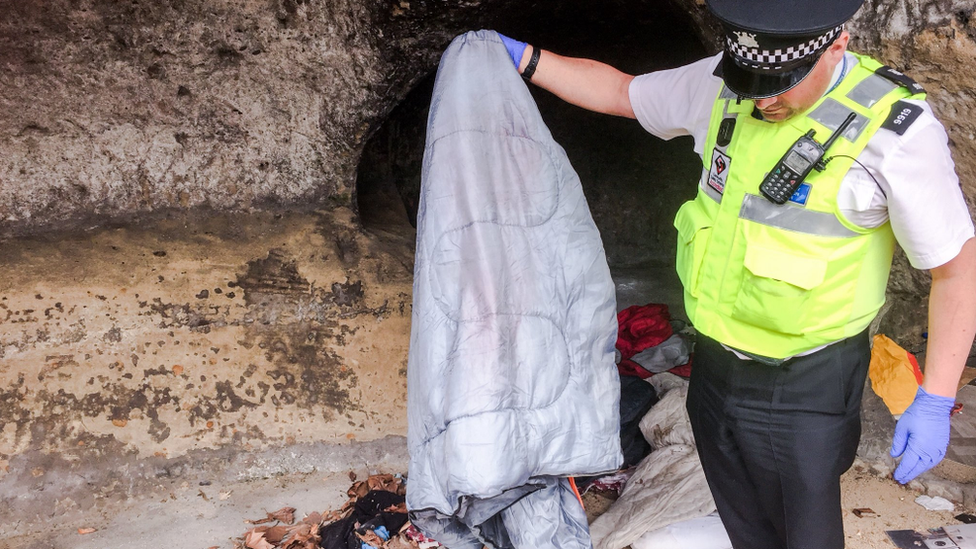Homeless outreach workers see large rise in rough sleepers in Nottingham
- Published
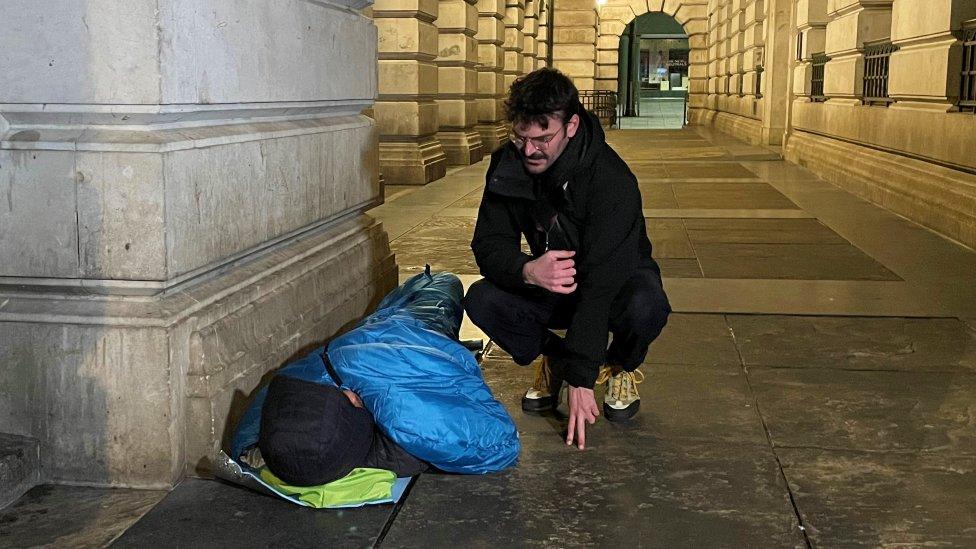
Framework said 1,350 people had spent at least one night sleeping rough in Nottingham last year
The number of people found sleeping rough in Nottingham last year has risen by 85%, a charity has said.
Framework's street outreach team identified 1,350 people sleeping in places such as shopfronts, cars or tents in 2023.
The figure is a significant rise on the 729 they engaged with in 2022.
Andrew Redfern, chief executive of Framework, said pressures on support services and a housing shortage were factors in the rising numbers.
"Until recently it was possible to resettle people with low support needs fairly quickly... this is no longer the case," he added.
"We are trying to meet increasing need with less resource."
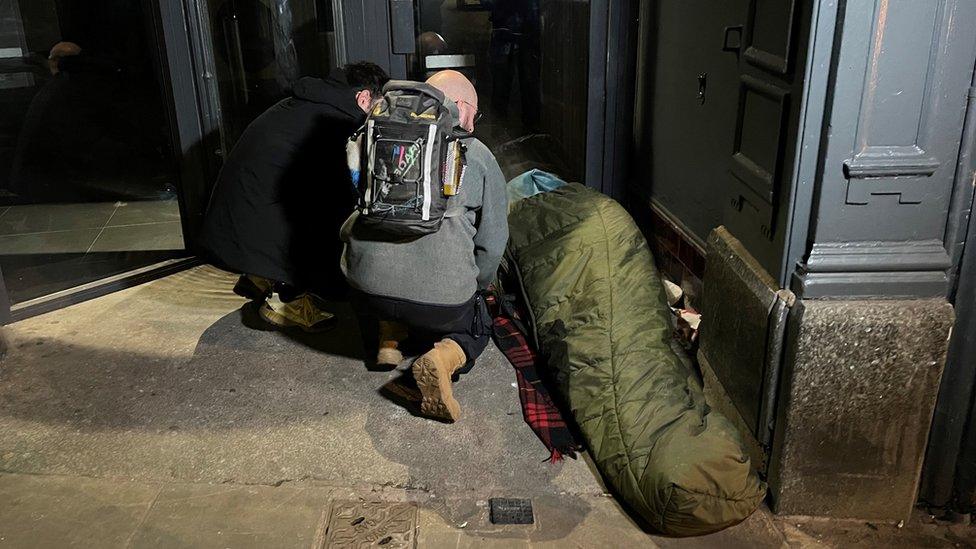
The sleepers were found across the city in places including shopfronts, cars or tents
Nottingham's street outreach workers begin their "welfare checks" at 05:00 every night of the year.
The BBC accompanied Jack Dowell and Reece Todd, from the team, on their checks for a night, when they found a number of people exposed to the elements in sleeping bags.
One man sheltering behind rubbish bins said he had just been released from prison.
Two other men, who were found sleeping outside the Royal Concert Hall, were not from Nottingham and were offered "reconnection" to the local council area where they qualify for local housing.
The outreach team keeps a record of the individual rough sleepers it finds and engages with and many spend one or two nights on the street, while others hide out of sight.
Mr Dowell, who leads the outreach team, said: "Most people we do see, we can get them into accommodation. The problem is there's a long waiting list at the moment.
"A lot of people suffer from quite complex behaviours that can get them evicted."
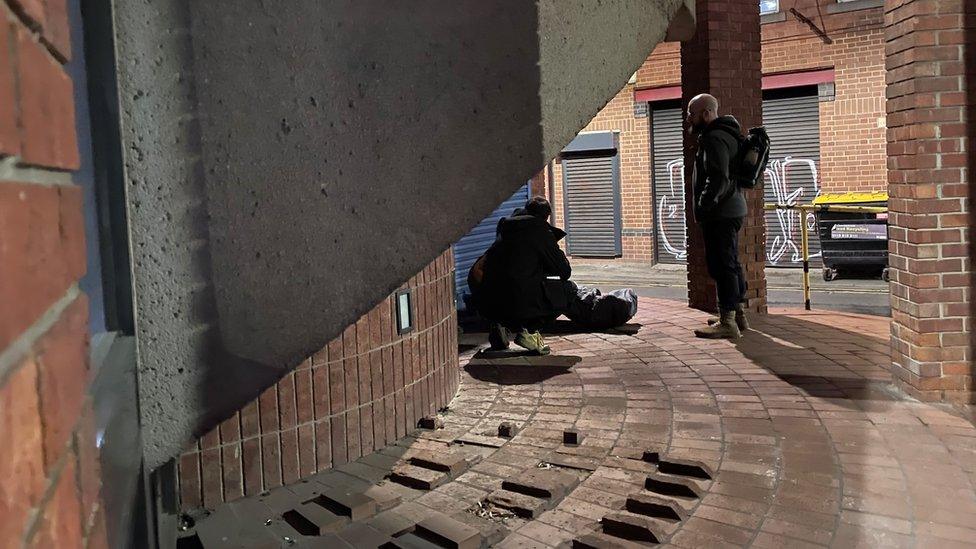
Nottingham's framework street outreach team carry out nightly welfare checks
A man in his 40s, who was found behind the Victoria shopping centre, said he left supported accommodation.
He wants to go to rehab for an alcohol addiction and refused the city council's offer of private tenancy.
"I don't want private [tenancy]. I want supported accommodation," he said.
"I need help. I need support. I need a key worker or somebody... it's been freezing."
The outreach workers said they had also found 50 newly-recognised refugees in the last few months after hotels, which housed asylum seekers, closed.
The refugees had been given up to 28 days to leave the hotel after being granted the right to work and get tenancies.
The charity said it was now opening a new temporary building with space for 12 refugees to support demand.
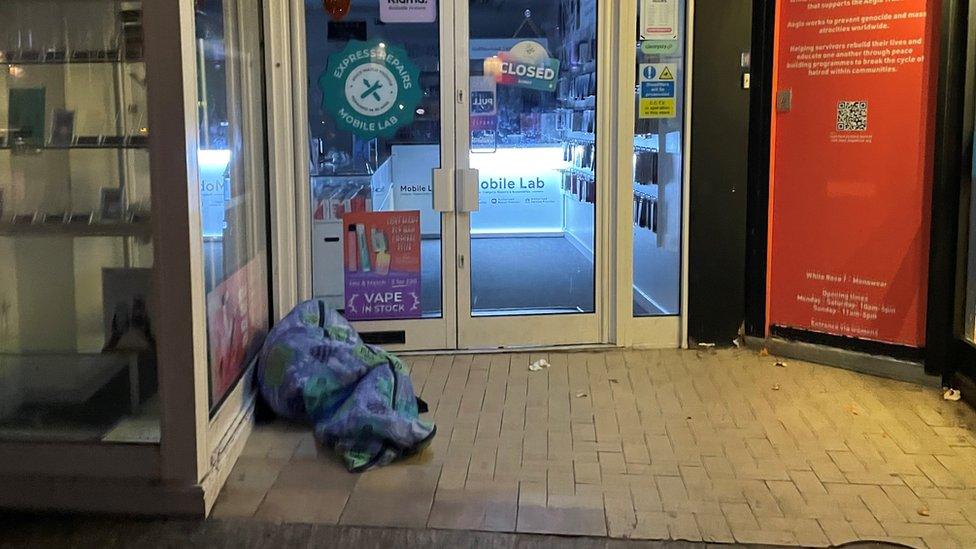
The charity said it was "trying to meet increasing need with less resource"
Nottingham City Council has been awarded more than £7m as part of the government's three-year "rough sleeping initiative".
The council said the funding would pay for a range of accommodation, support and prevention services.
The Department for Levelling Up, Housing and Communities said it had allocated £36m to the initiative across the East Midlands, which was in addition to separate funding for treatment programmes and new accommodation.
But Mr Redfern said there needed to be a more sophisticated approach to rough sleepers who needed support, and housing, treatment and employment services needed to work together better.
He said there had been effective programmes to tackle rough sleeping in the past.
"It happened in 2010 as a result of the supporting people programme, which was very effective," he said.
"The problem is every time we learn how to do it, we unlearn those lessons again and do things differently and then rough sleeping comes back.
"It's not just about putting a roof over someone's head."
The official annual "rough sleepers count" for all local authorities in England is due to be published at the end of the month.

Follow BBC East Midlands on Facebook, external, on X, external, or on Instagram, external. Send your story ideas to eastmidsnews@bbc.co.uk, external
Related topics
- Published12 October 2023
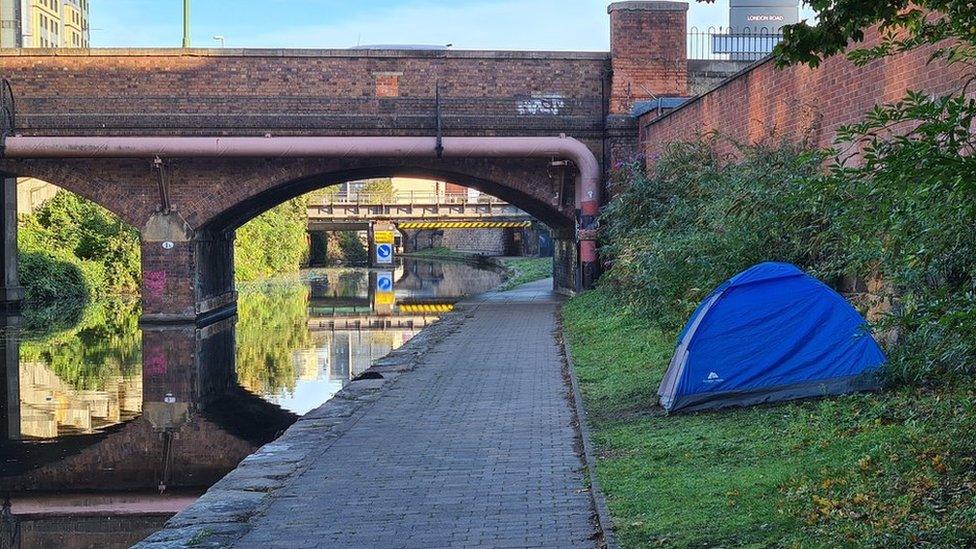
- Published11 October 2023
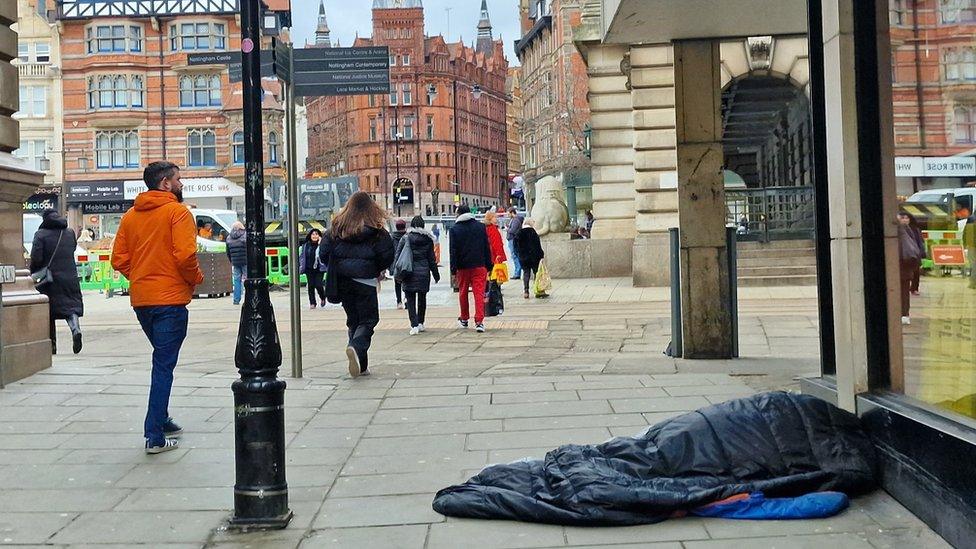
- Published3 February 2023
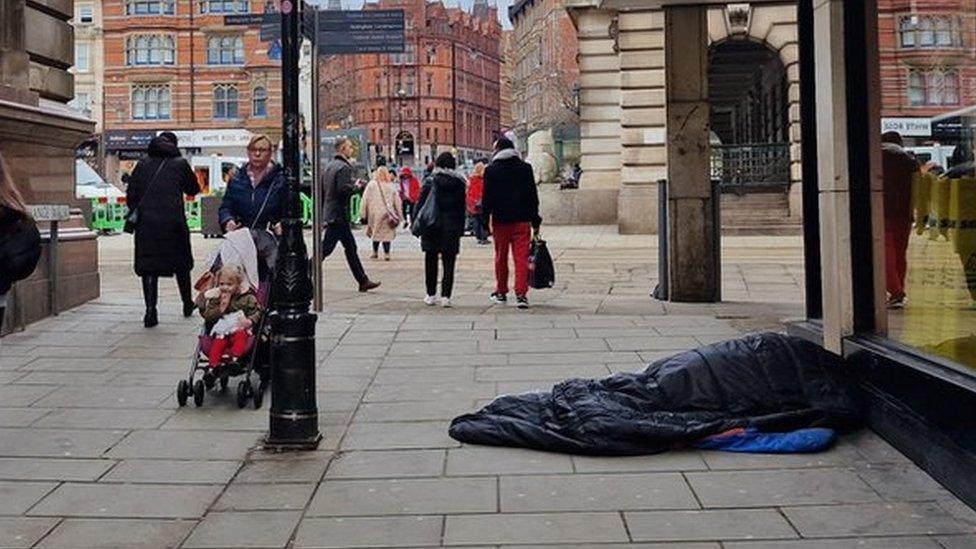
- Published7 March 2022
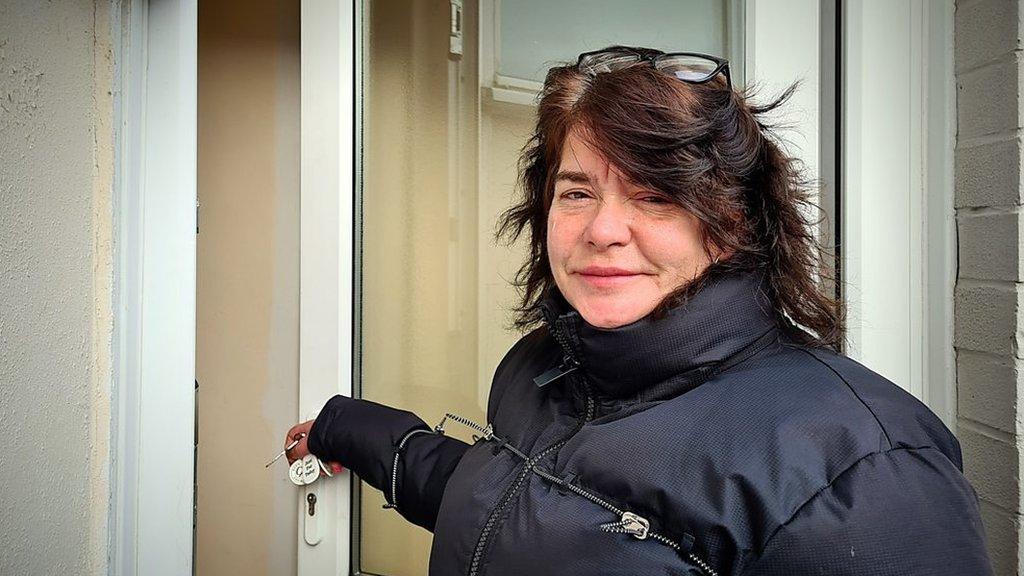
- Published24 August 2018
